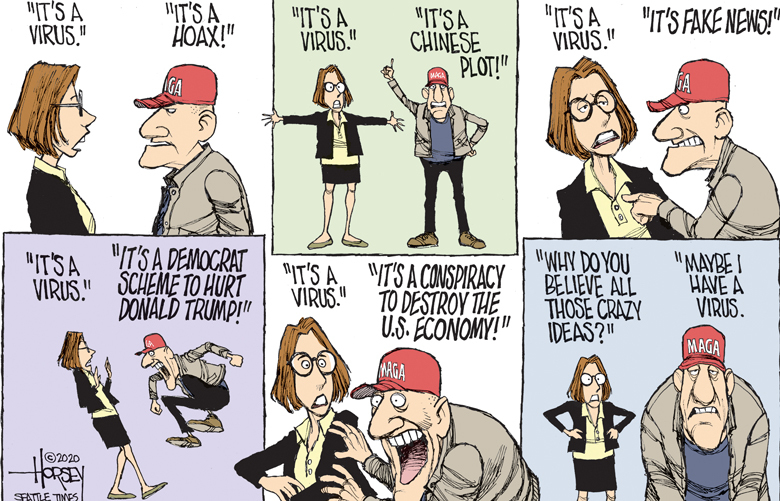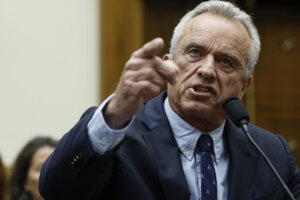The contagion of conspiracy theories

It is not a new phenomenon in human history that a significant number of people choose to believe wild fantasies over straight facts. For some, it seems the wilder the theory the more readily it is believed.
There are a number of psychological and cultural explanations for this, but a big reason for this rejection of rationality is that some events are just so monumental that it is hard to accept that they came about by chance or through simple, natural causes. From the JFK assassination to 9/11, conspiracy mongers on both the right and left have filled books, blogs and gullible minds with elaborate, dark fantasies about what really happened.
The novel coronavirus pandemic is no different. It has been variously called a media hoax, a Chinese plot and a Democratic Party scheme to wreck President Donald Trump’s re-election chances – memes that have been seized upon, not only by fervent supporters of the president, but by the president himself.
The truth is so much simpler: Viruses happen, so be prepared.
See more of David Horsey’s cartoons at: st.news/davidhorsey
View other syndicated cartoonists at: st.news/cartoons
*** This article has been archived for your research. The original version from The Seattle Times can be found here ***


